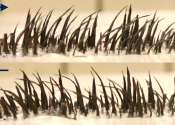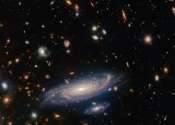Possible new process for the synthesis of rare nuclei in the universe
A new nucleosynthesis process denoted as the νr-process has been suggested by scientists from GSI Helmholtzzentrum für Schwerionenforschung, Technische Universität Darmstadt, and the Max Planck Institute for Astrophysics. ...









